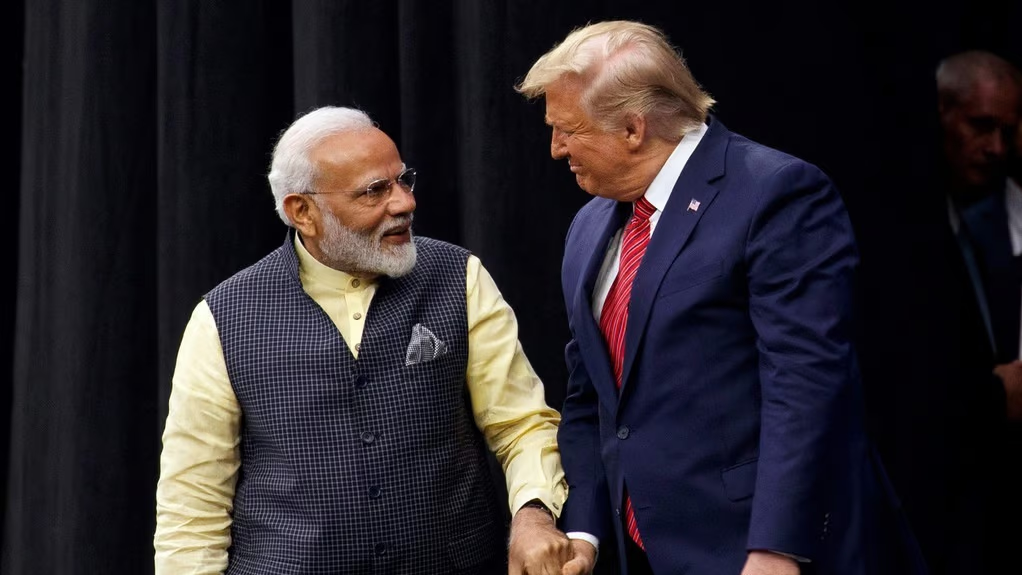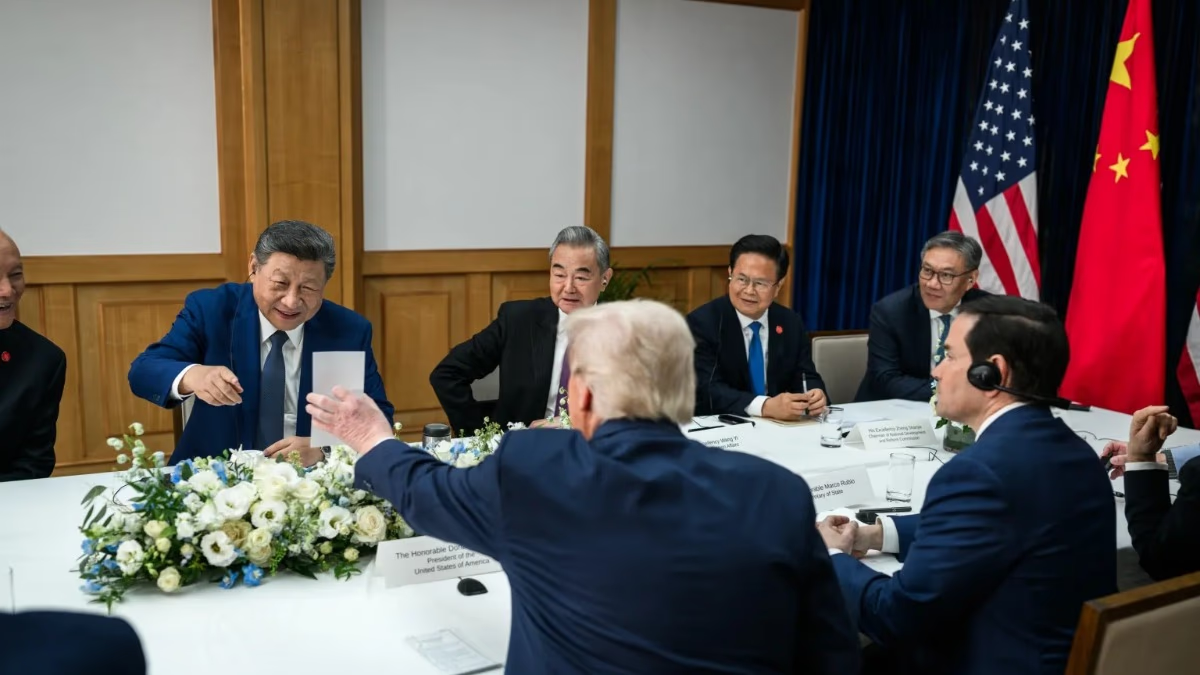The outcomes of the American elections have carved a new chapter in history. Four years after stepping down from the presidency, Donald Trump, once perceived to be entangled in legal complications, has triumphed over all controversies to secure victory. This win will undoubtedly influence global politics, holding special significance for India, viewing Trump's past tenure as fortifying U.S.-India relations. Prime Minister Modi congratulated Trump over the phone, further emphasizing their camaraderie.
Trump and Modi consider each other remarkable friends, and the policies of Trump's administration have seamlessly aligned with India's interests. It's vital to assess how Trump's victory will shift the world order and fortify U.S.-India relations. In truth, Trump's electoral success brings joy and hope to India as their relationship revolves around four pivotal areas.
The first pillar is trade, the second is technology, the third is energy, and the fourth is defense and strategic partnerships. The vibrant colors of this friendship woven through these areas are eagerly anticipated by people of both nations, primarily due to Trump and Modi's mutual bonhomie.
Also Read:
From the Howdy Modi event in Houston five years ago to the Namaste Trump rally in Ahmedabad during the pandemic, the world has witnessed the chemistry between Modi and Trump on several occasions.
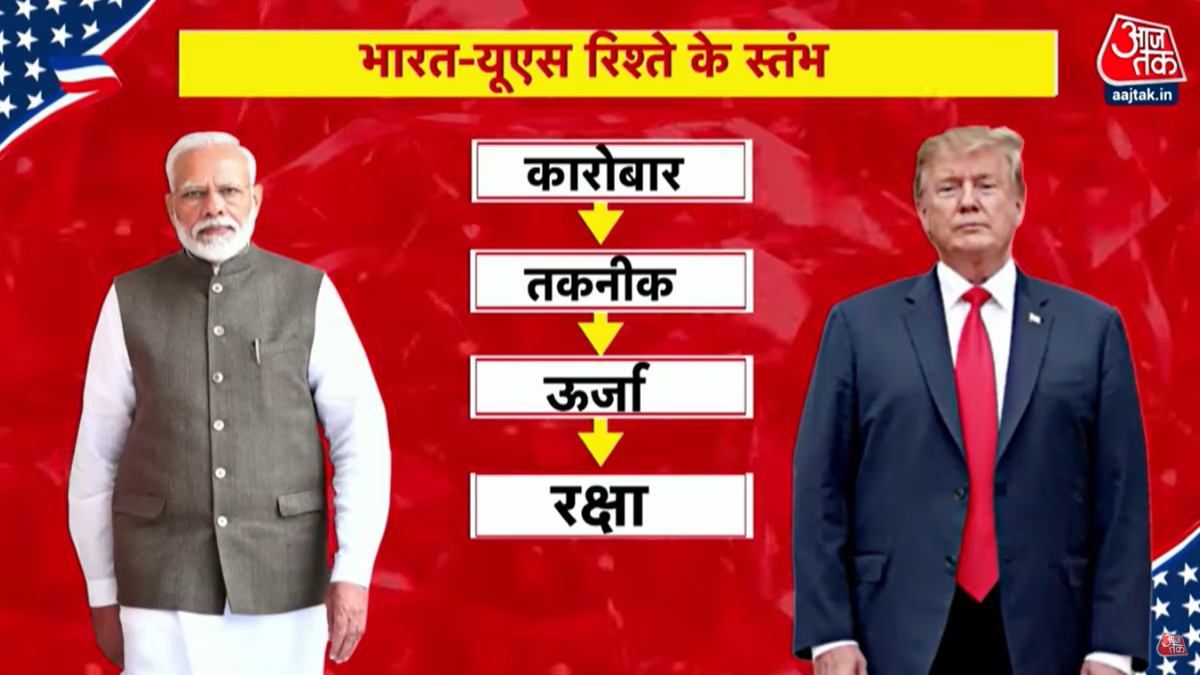
Source: aajtak
India's Share in Global Exports May Rise
The arrival of Trump's administration in America might redefine business ties with India. Built on the strong foundation of the friendship initiated during Trump's previous term, America remains a significant export destination for India. As of 2023-24, India's imports from America stood at $42.2 billion, whereas exports to the U.S. reached $77.52 billion.
Trump's policies have been against Chinese monopolies, hence it's anticipated that Chinese imports might face increased taxation under his leadership. This could pave the way for India to boost its share in global exports. Higher taxes on Chinese goods could provide opportunities for exporting Indian textiles, tiles, wires, and cables. Additionally, prospects will improve for Indian metal exporters in the American market, along with opportunities for chemical and pharmaceutical sectors.
Also Read:
A significant aspect of the U.S.-India friendship is China. To counter China, America strategically created a front in the Indo-Pacific region. With Trump's return, this QUAD front is expected to advance more robustly, particularly through increased joint military exercises around Indian maritime zones, ultimately benefiting arms trade. There's also a possibility for technology transfers and maintaining a strong coalition against China's growing ambitions.
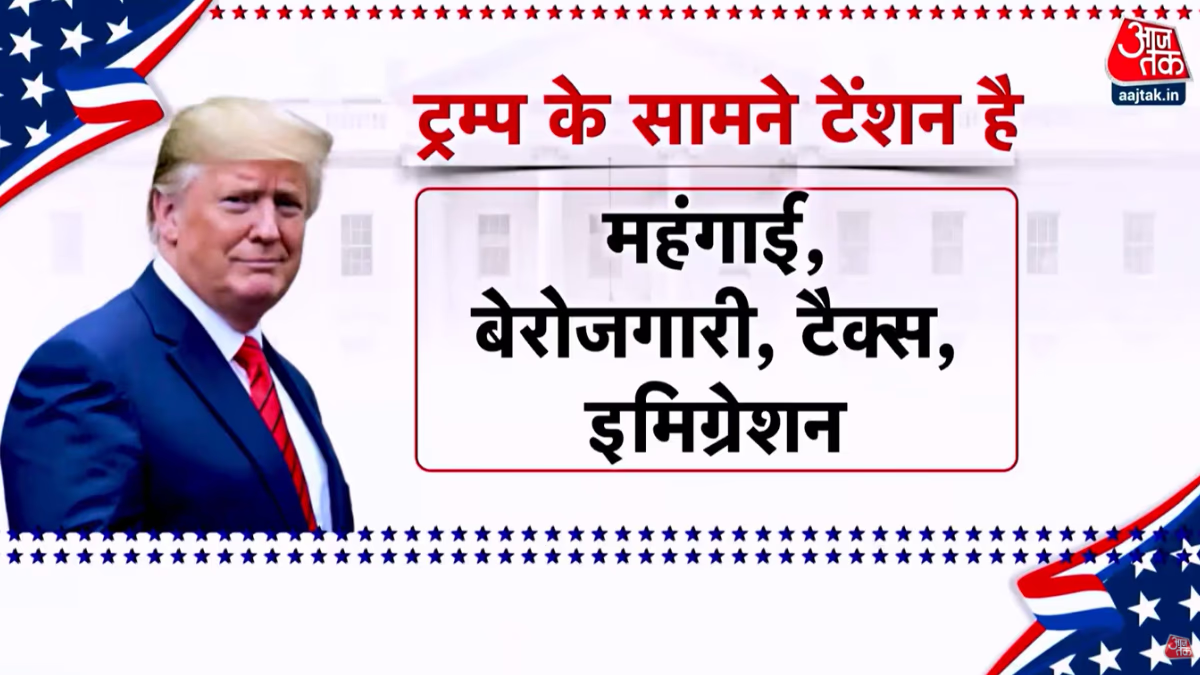
Source: aajtak
What Does Trump's Arrival Mean for India?
Considering Trump's previous administration, lingering uncertainties exist. Several domestic issues such as inflation, unemployment, tax, and immigration confront him. Immigration and employment are particularly significant issues that might culminate in decision-making against India and Indians.
Also Read:
With Trump's return, speculative harsh immigration policies might emerge, potentially complicating matters for Indians regarding H1-B visas, thereby reducing job opportunities in the U.S. for Indians. Only last year, about 1100 illegal Indians were deported from the U.S. During Trump's regime, a new tension pertained to tariffs, for Trump sometimes labeled India as a tariff king and an abuser.
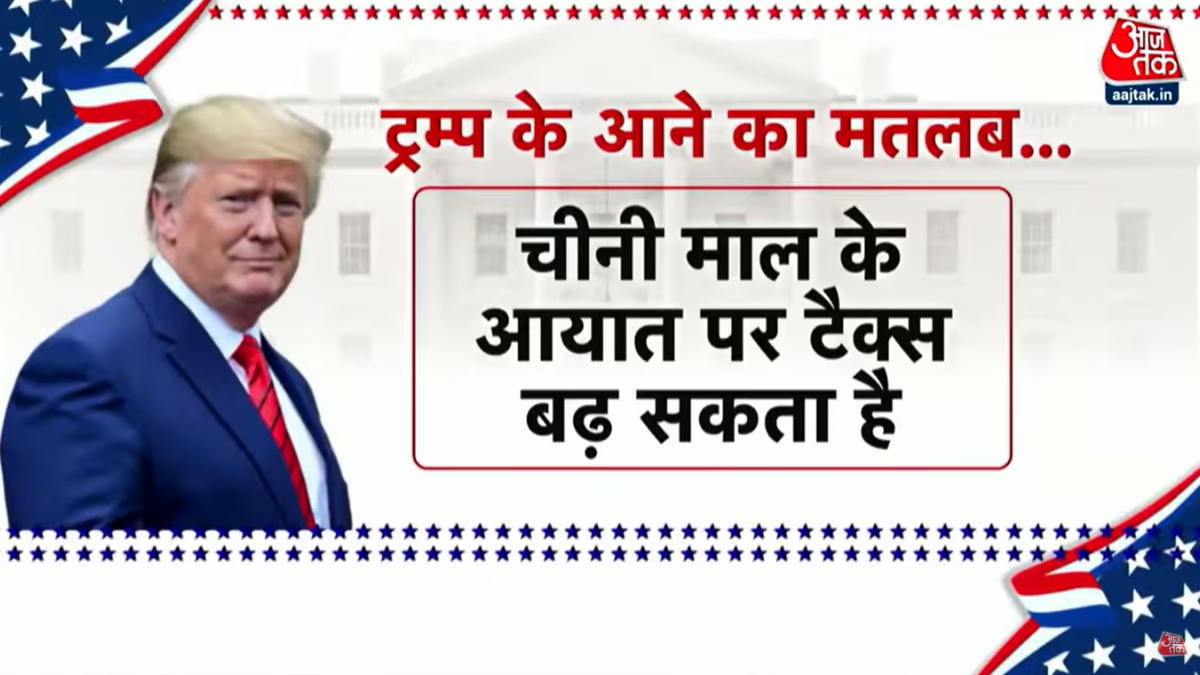
Source: aajtak
In 2019, when India imposed taxes on several American products, Trump threatened high tariffs on Indian products over the Harley Davidson issue. Subsequently, the U.S. increased import duties on steel and aluminum and revoked India's preferential trade agreement. Furthermore, when India sourced oil from Iran, the Trump administration threatened sanctions, also objecting to the S-400 deal with Russia.
Should Trump's tariff policy target India, pressure might arise to reduce tax on American exports, impacting sectors like IT, pharma, and textiles if not resolved. Nonetheless, in the post-pandemic world order, maintaining market dynamics is essential globally, making relations with India beneficial for every nation.
